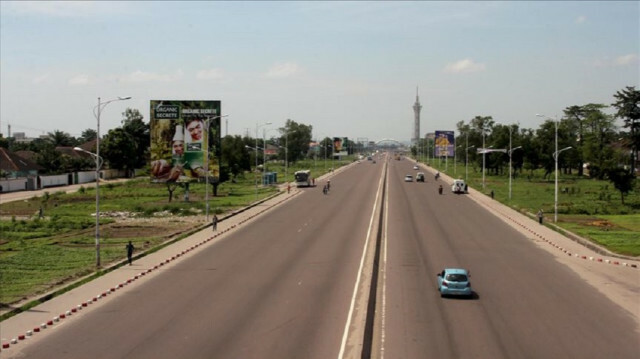
Conflict and corruption are two main factors that have led to a drastic reduction of industrial activity in the Central African country of the Democratic Republic of the Congo over the past 60 years, claim experts.
The country was touted as the highly industrialized nation in sub-Saharan Africa with 10,000 production units operating at the time of achieving independence from Belgium in 1960. But currently, only 500 industrial units are catering to the population of 105 million.
Speaking to Anadolu Agency, Oscar Kimanuka, a Kigali-based political analyst, said corruption, lack of commitment, and political will on the part of the Congolese post-independent leaders were the main reasons leading to the downfall of industries.
The political instability that started with the assassination of Patrice Emery Lumumba, the first prime minister, just a year after the independence also put roadblocks towards investments in the industries.
“Industrialization was no longer a priority. Extraction of various minerals for the benefit of the West and a few selfish individual leaders became a priority for the governments,” said Kimanuka.
He said only a few basic industries involved in processing minerals and other primary products for local consumption could survive.
Now with President Felix Tshisekedi, who took over in 2019 unveiling the package known as the 2040 Master Plan for Industrialization, experts say the plan will not materialize in the wake of conflicts ragging the country.
The eastern parts of DR Congo have been witnessing conflict with multiple foreign and local armed groups mushrooming in recent years.
Nearly 500 civilians have been killed in North Kivu and South Kivu alone since the beginning of this year, according to the Kivu Security Tracker, a monitor focused on violence in eastern DR Congo.
“Before this ambitious (industrial) project can take off, there is an urgent need to restore peace and security in the vast Central African nation. Peace and security are primary prerequisites to any nation's prosperity, including industrialization. Putting the cart before the horse cannot be realistic,” Kimanuka said.
- Peace mandatory for a revival plan
Kimanuka said only in an environment of peace and security there is hope to revive industrialization.
The plan aims to achieve the objective of industrial growth and transform DR Congo, according to Congolese Industry Minister Julien Paluku.
He said that over the next five years, the government wants to double the number of industrial production units from 500-1,000 and reduce import bills estimated at nearly $6.5 billion per year by 60%.
To implement the plan, the government has split DR Congo into six industrial zones.
These include the west in the Kinshasa region, the south in the former Katanga, the central zone in the Kasai area, the east zone in the three Kivu provinces, the northeast zone which includes the former Orientale province, and the north-west zone made up of the former Equateur.
These industrial zones are expected to be transformed by 2040 into export hubs to neighboring countries.













